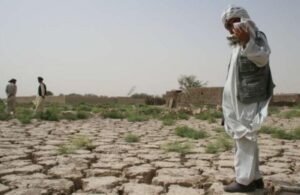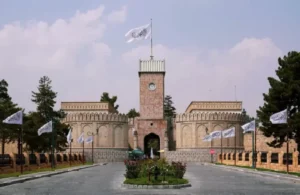MONITORING (SW) – Senior Biden administration officials are working with Taliban leadership on a mechanism to allow Afghanistan’s government to use its central bank reserves to deal with a severe hunger crisis without giving the former militant group free rein, reported Washington Post.
Facing that emergency, as well as a devastating earthquake that struck the eastern part of the country this month, Biden aides have begun talks to restore to the Afghan government at least partial use of the frozen funds that are kept in U.S. institutions. In negotiations with Taliban officials, they have tried to set up a system through which career central bankers and bureaucrats could manage the assets to stabilize the Afghan economy — while simultaneously erecting safeguards that would ensure the funds are not siphoned off for misuse by the Taliban, the people familiar with the matter said. One option discussed by those close to the talks involves having a third party trust fund administer the money, two people familiar with the matter said, although the exact structure of such an arrangement was not clear.
Senior administration officials have expressed optimism about the progress on talks but cautioned that several obstacles to a deal remain. The people spoke on the condition of anonymity to describe private diplomatic negotiations.
“It would be accurate to say negotiations are underway,” said Shah Mehrabi, an economics professor at Montgomery College in Maryland and a senior member Afghanistan’s central bank board since 2002. “We are in the process of trying to come up with a mechanism that will allow the transfer of reserves to the central bank of Afghanistan.”
Mehrabi declined to comment on the details of the negotiations. He said talks are ongoing between the United States and the Taliban but stressed that the “mechanism has not been finalized by all parties involved.” Mehrabi said food costs have skyrocketed by 18 percent in the past several months. Basic household goods rose in cost by 35 percent during the first few months of the year; in May, inflation for household goods hit 42 percent, Mehrabi said.
“These reserves belong to the Afghan people; they are needed to stabilize prices,” he said. “The faster it is delivered to the central bank of Afghanistan, the sooner we will see the impact of the reduction in prices that are critical to enable ordinary Afghans to afford food, cooking oil, and sugar and fuel. Now, they can’t do that.”
The White House referred questions to the Treasury Department. A Treasury spokeswoman declined to comment.
The fate of Afghanistan’s place in the world economy has challenged the Biden administration for months, following the debacle of the U.S. withdrawal from the region and the subsequent swift collapse of Afghanistan’s government and takeover by the Taliban. The White House has tried allowing critical aid to flow to the country by allowing firms to conduct humanitarian activity, but aid groups and many Afghans say these efforts have been insufficient in the face of the widening crisis.
In recent months, the United States has tried using the United Nations as a conduit to allocating aid while bypassing Taliban leadership, but these efforts have amounted to a small fraction of the billions that the U.S.-led coalition once gave to the country.
Complicating the challenge for the Biden administration is that the Taliban has not met American demands for guaranteeing the rights of women and minorities — instead, it cracked down on dissent and shuttered schools for girls, among other such measures. “Our fight was against the invaders to free Afghanistan from occupation and establish Islamic law,” acting foreign minister Amir Khan Muttaqi previously told The Washington Post. “There will be no change in our stance.”
That has left the fate of the reserves unclear. The White House this February announced that Afghanistan’s $7 billion in foreign-held reserves would be cleaved in two, with $3.5 billion held for the ongoing legal claims of the families of the victims of the Sept. 11, 2001, terrorist attacks. The administration promised to release the other $3.5 billion back to Afghanistan, but it has remained unused.
In a statement then, the White House said the move was “designed to provide a path for the funds to reach the people of Afghanistan, while keeping them out of the hands of the Taliban and malicious actors.”
But international aid groups and some congressional Democrats have said the U.S. policy has proved insufficient for the growing economic crisis in Afghanistan, which has been exacerbated by global spikes in food prices due to Russia’s invasion of Ukraine.
Save the Children, an international aid group, estimated last month that roughly 10 million children in Afghanistan are “going hungry every day.” The nonprofit group estimated that 20,000 people “were pushed into famine” from March to May alone. Rep. Pramila Jayapal (D-Wash.), chair of the Congressional Progressive Caucus, said the United States must move more quickly.
“This week’s tragic earthquake in Afghanistan only increases the urgency of finally shifting U.S. policy away from devastating sanctions that continue undermine reconstruction efforts and a functioning public health system and hamper aid agencies working on rescue and relief,” Jayapal said in a statement. “I look forward to seeing the Treasury Department move quickly to meet the humanitarian need, in the wake of this natural disaster, and to ensure that Afghanistan has a functioning central bank and an economy that can begin to alleviate the enormous difficulties facing the Afghan people.”
ENDS






